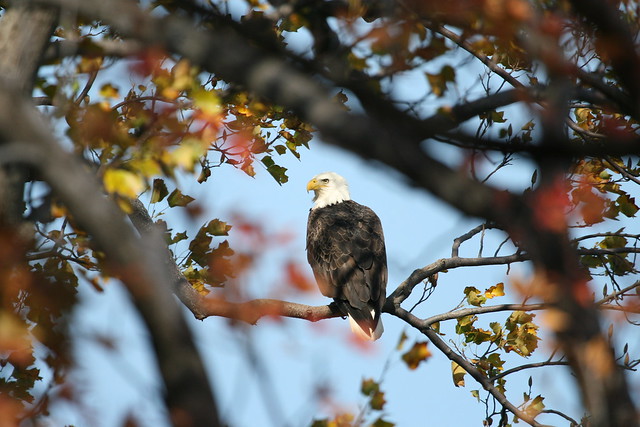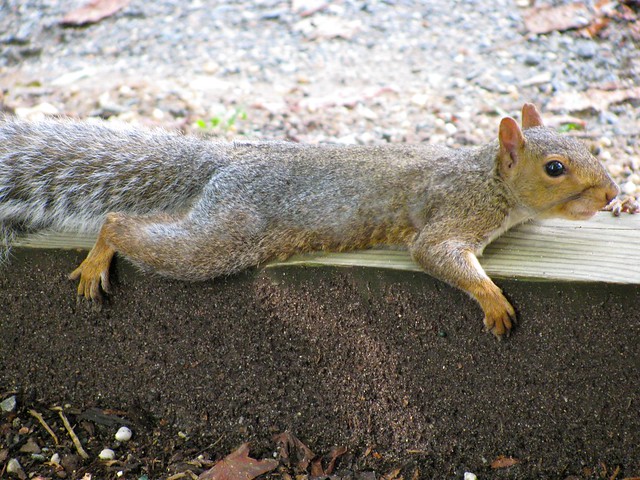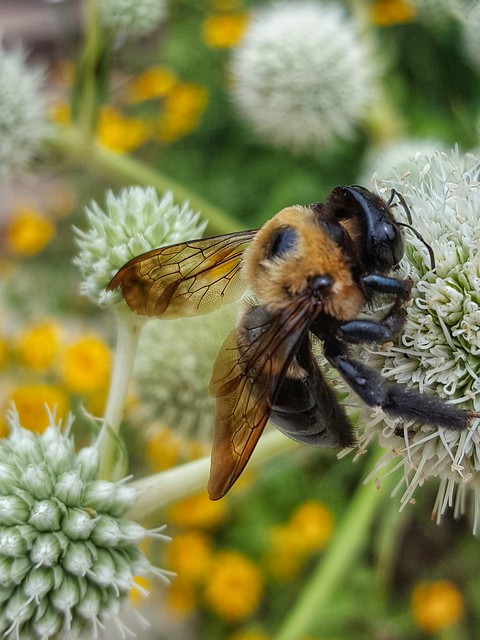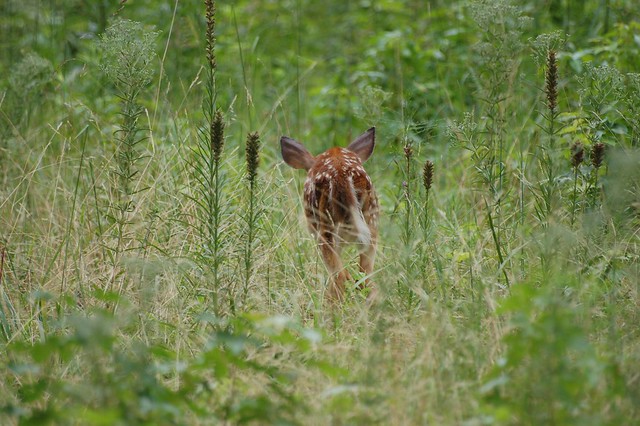Open fires are prohibited throughout the park from midnight to 4 p.m. through April 30 per the 4 p.m. Burning Law. This includes wood and charcoal. Gas is permissible. Campground fires are allowed during the restricted time if a camp host is on duty and signage to that effect is posted in the campground. Failure to observe the 4 p.m. Burning Law can result in a fine. Contact the Park Office for additional information.
Read Our Blogs
Gotta Count 'Em All! BioBlitz Returns to Westmoreland State Park
Get out, explore the park and join the Citizen Science revolution on National Public Lands Day at Westmoreland State Park.
We will celebrate our local biodiversity by cataloging as many species within the park as we can on September 22, 2018 from 9:00 a.m. to noon. All you need to do to participate is to take identifiable photos of living things in the park and add them to our iNaturalist project.
Eagles abound at Westmoreland State Park. Not much help needed to ID this one at the BioBlitz
Grab your smartphone and install the iNaturalist app., create a free profile, and join the Westmoreland State Park BioBlitz project! You may also bring your camera and upload the photos to the website later.
Join the project, learn about iNaturalist, and track our progress at the Westmoreland State Park iNaturalist page.
Some species are easier to find than others
iNaturalist has been called the Instagram of Biology. It packs the power of a whole team of naturalists and field guides into an easy to use mobile app. Whether you are participating in our BioBlitz or wondering what bug just flew into your car, snap a photo, upload it, and within seconds, the app uses photo recognition to identify the subject of your photo. Choose a likely ID, and the iNaturalist community will join in to confirm or correct the identification, at which point the data becomes “research grade” and is added to the observations available to researchers, classrooms, government agencies, and others who use the crowdsourced biology data to inform science, education, policy, and management.
Honey bees and other pollinators are crucial to healthy ecosystems
A Westmoreland State Park fawn
Healthy, biodiverse ecosystems are better able to provide for the needs of each living organism within the system--including us, and the rest of life as we know it. So, come on out, and get more familiar with what’s living right here, supporting you.
Directions and more information about Westmoreland State Park can be found here. For overnight accommodation, visit the park's lodging page here or call 800-933-7275 for assistance.
If you have read the article and have a question, please email nancy.heltman@dcr.virginia.gov.
Search for blogs
By Park
Categories
Cabins
Camping
Fishing
History and Culture
Other
Programs and Events
Trails
Volunteers
Water Fun
Archive
2024
2023
2022
2021
2020
2019
2018
2017
2016
2015
2014
2012


















